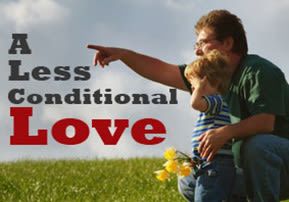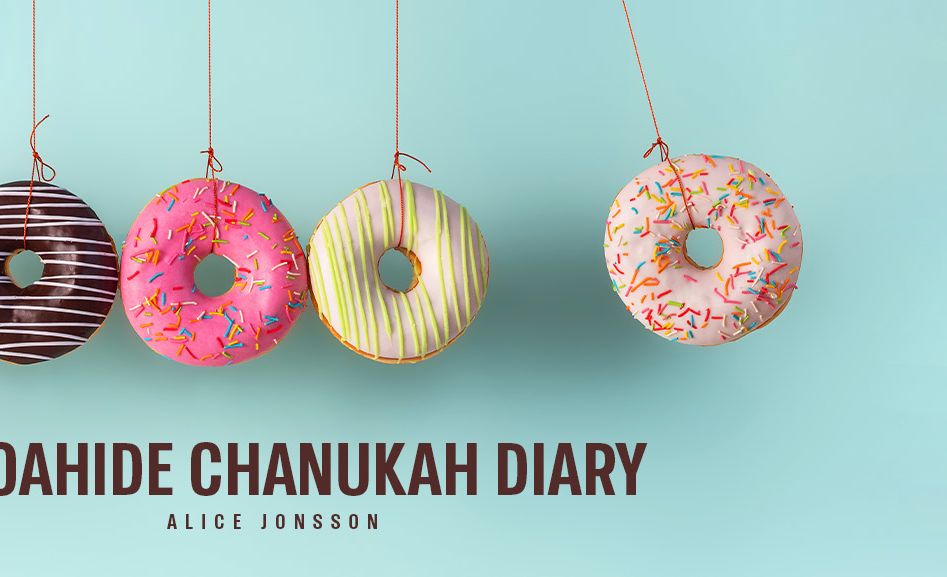
A Less Conditional Love
We should feel remorse for going against God’s will, but we need to move forward and not become, God forbid, trapped in the quicksand of negative emotions.

Imagine you get a call from your daughter’s school. It turns out she decided to skip school with some friends and ended up at the home of one of the kids where they got up to no good. By ‘no good’ I mean something that would really make you freak out like getting into the parents’ liquor cabinet.
How would you want for this to be resolved? You and your spouse would lecture her up one wall and down the other, take away her license until she was thirty-two, make her apologize to the other kid’s parents, have her stay after school. Those all sound good to me. But then what? Would you want her to feel terrible about the whole thing? If so, for how long? If I am being honest I would say that there is a part of me that would want for my kid to feel badly for a long time for doing such a thing, but is that really the best scenario?
There is a point after which we have screwed up where the feeling rotten may not be accomplishing much. I think we can all see some truth in that, coming from a basic, common sense viewpoint. The ideal outcome in the aforementioned scenario would be that after the apologies and the consequences, she would understand that what she did was wrong, grow as a person, and eventually stop feeling badly about what she did. I do not mean that she would eventually think it was no big deal, rather that she would be able to see it as a mistake that helped her to learn about the world and grow as a person.
In The Garden of Emuna, Rabbi Arush talks about how God wants our teshuva, not our depression. (page 217) We should feel remorse for going against God’s will, but we need to move forward and not become, God forbid, trapped in the quicksand of negative emotions.
Perhaps this generosity is all a part of God’s unconditional love for us. And since ideally we are emulating our parent Hashem when we guide our own children, we need to extend the same unconditional love to them. Clearly this is so. We need to remember that God wants for us to get back on the path, to do better – not for us to sit around wallowing in shame and depression, so we need to treat our kids in the same manner. We need to help them see what they did wrong, let them feel some remorse over it, teach them how to apologize and make it right, and then help them to move forward better able to avoid that particular pitfall.
Like most parents I read parenting books, articles about how to discipline effectively and so forth. The idea that kids need to feel our unconditional love in addition to receiving our corrections and discipline naturally comes up over and over. This balance between the right hand and the left creates a fertile environment for personal growth. Our kids need to know that they are in a place where it is safe to mess up. We will love them anyway. Hopefully they will get consequences from us, or else we will be creating lame future adults. But hopefully they will be receiving the discipline with the knowledge that our love does not go away, just as our Creator’s love for us does not. We want for our kids to do better, not to feel beaten down.

This is a principle that can be extended to our brothers and sisters, to our parents, to aunts and uncles, to our in-laws. We may resist doing so because in some of these relationships there is not the powerful love a parent has for his or her child. Therefore, it is easier to enjoy punishing a person by holding a grudge. We may be so annoyed with some of these people, we want for them to feel badly about their mistakes and they may want for us to feel badly about our mistakes. But maybe there is a way to move closer to that feeling of unconditional love, to create a space for them where it is a bit safer to screw up. What is the harm? We could call it ‘less conditional love’.
Ultimately it seems to me when we stay in the punishing state of mind we are trying to do God’s job for Him. God knows the mistakes we have all made and is the Perfect Judge. Given that that is the case, what is the point of the grudges we bear? Is it that I want to punish the person, to protect myself from the person, to hold myself above the person? God wants their teshuva, not their depression, so why should I be the one potentially make them feel depressed? When the emphasis is on teaching one another to behave morally and not on punishment and grudges we are in line with the framework that Hashem has created for our benefit.










Tell us what you think!
Thank you for your comment!
It will be published after approval by the Editor.